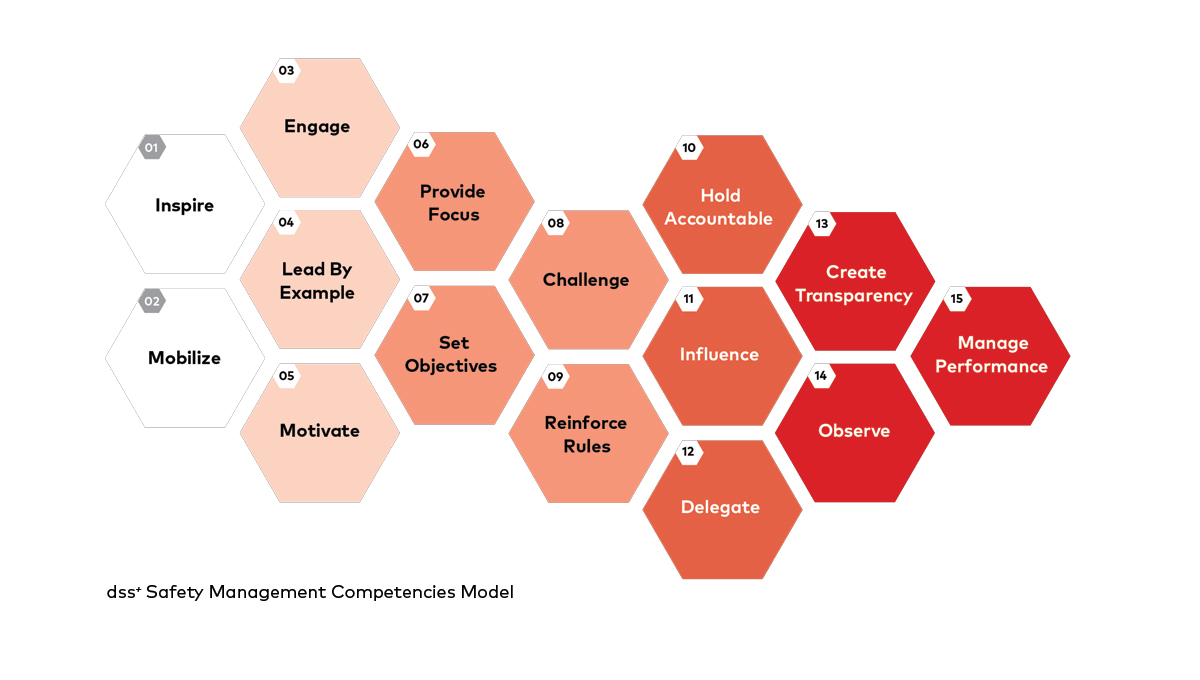How effective is coaching for improving risk management?
Leading an organisation or a department can be a lonely job. Everyone looks to management for visionary decision making and expects clear corporate governance guidelines as well as a drive from the top that carries them along on a positive development journey. The pressures can be great. Perhaps that is why executive coaching has become so popular. A 2013 Stanford University study showed that "nearly two-thirds of CEOs do not receive outside leadership advice, but nearly all want it"1 . Coaching not only demonstrates that the organisation believes the executive or manager is worthy of investment, but also presents him or her with the opportunity to draw out and develop strengths, to achieve his personal and business objectives and to add value to the organisation. Yet with the tightening of budgets, organisations may wonder if coaching is really necessary and the same result couldn't be achieved with group training.

To answer that question let us first look at the difference between training and coaching. Coaching can be defined as collaborative support for decision makers, executives and managers to help them attain goals, solve problems, learn, develop, and effectively guide their teams to achieve key objectives. Constructive coaching should be a dialogue between equals that allows the coaching participant to unlock his potential and so bring greater value to the organisation and the people he or she leads. Put simply, coaching should achieve greater productivity with less stress. What's not to like? In order to be effective, however, coaching has to deliver all these results sustainably, for the long term. As coaching guru, John Whitmore writes in his Coaching for Performance book, "Coaching for Performance is (…) a means of obtaining optimum performance – but one that demands fundamental changes in attitude, in leadership behaviour, and in organizational structure."2.
Training differs in that it is much more about transferring knowledge and skills and developing certain behaviours than enhancing or unlocking competencies. It is usually much more structured and focused on the result that the organisation wants to achieve than the result the individual wants to attain.
Research results
One of the largest impact studies on executive coaching to date was carried out by Professor James W. Smither from the management department at La Salle University in 20063. It assessed 1202 senior managers over two consecutive years. Feedback from their supervisors, peers and subordinates as well as appraisals by independent researchers was generally more positive for those managers who had worked with a coach. Improvements were noted in the areas of goal setting, encouraging others to make improvement suggestions and achievements. The overall effectiveness of executive coaching has also been studied in two recent meta-analyses. The analysis carried out by the University of Amsterdam4 in 2014 concluded that executive coaching is an effective intervention in organisations because of its positive impacts on individual-level performance and skills, well-being, coping, work attitudes and goal-directed self-regulation. Looking at coaching in relation to alternative training methods, a paper presented at a British psychology conference in 2014 by Rebecca Jones5, a senior lecturer in management at the University of Worcester, UK further reported that executive coaching also has a greater impact on performance compared with other workplace development tools. In other words, coaching can be a highly effective tool for decision-makers – whether they are CEOs, departmental heads or plant managers.
In view of such positive findings, it is understandable that many boards and senior decision-makers are keen to access this form of talent development. But who should have what kind of coaching? Increasingly, businesses are moving away from broadband consultants to coaches who are specialists in their fields. dss+ is a specialist operations and safety management consultancy that offers coaching specifically for risk management as part of its dss+ Risk Factor™ programme. Such coaching has proved remarkably effective at all management levels from CEO to shift leader and can be tailored to suit different areas of responsibility. A leading German engineering company, for example, found its safety performance improved by 73 per cent as a result of coaching.
It is interesting that the results of several international studies have shown that the success of coaching depends not only on the readiness of the learner to be coached and a good relationship between the coaching partners but also on this specialist knowledge.
According to the Stanford report, the top two areas board directors say their executives need to work on are "mentoring skills/developing internal talent" and "sharing leadership/delegation skills." The same competencies are useful in all managerial positions. Many organisations avoid coaching such soft, less tangible skills as they are more nuanced and more difficult to develop. However, if senior leaders can improve their ability to motivate and inspire, this can, in combination with the 'harder' skills, have a great impact on their overall effectiveness.
Achieving measurable results from coaching
Coaching that focuses on motivational and inspirational skills enables leaders to build a greater, more successful organisational culture. dss+ helps senior executives and middle management boost precisely these skills with the coaching that the consulting firm has developed as part of its dss+ Risk Factor™ programme. It starts with a self-assessment by participants which allows them to better understand the emotional triggers and motivators that impact their decision-making and risk perception. This connects with other elements of the dss+ Risk Factor™ programme that look at the psychology behind decision-making and uses tools to help people own the fact that they take risks, choose safer options and change behaviours. The coaching however goes a step further and supports business leaders by exploring how to inspire and influence transformation in the organisation through an approach based on authenticity, understanding and storytelling. A starting point here is very often to revisit management routines and to share leaders' as well as team members' experiences of exposure to unsafe situations. It could also involve asking colleagues who have had an accident to relate what happened and why. Regular praise for activities or behaviours that prevented risky situations from developing is crucial to foster the targeted behaviour change. It is also important to keep finding new methods and fresh examples to motivate employees to continue identifying and even anticipating risk in different situations. In this context, the coach acts as an external sounding board and sparring partner for business leaders in reviewing and furthering their insights and ability to act as role models in their organisation. Coaching furthermore gives participants the opportunity to define personal and business goals, and discuss questions and areas where they have difficulties. Together with the coach, they assess what experience, skills and tools they can use to make changes and translate this into action plans. The benefit of this coaching approach is that participants can apply the skills they develop to other areas outside the risk management field.

The dss+ style of coaching not only focuses on soft skills but is also designed to be scalable and measurable by carefully gauging capabilities and competencies at the beginning and end of the coaching journey.
At the outset of the process, coachees complete a self-assessment questionnaire, then jointly agree on goals with their coach, define priorities and discuss current management routines and issues. This is followed by the setting of clear action points and their practical implementation. The coach will support this with practice sessions in the field and identify improvement potential as well as strengths.
Developing leadership competencies
Coaching is one way of building and developing leadership competencies. Which leadership competencies are critical to moving the organisation forward will be governed by the cultural maturity of the company. In his book The Inner Game, Tim Gallwey created an equation that highlights the internal obstacles people face such as fear, self-doubt, lapses in focus, and limiting concepts of assumptions. The Inner Game equation, Performance = Potential minus Interference, offers a solution to overcoming these hindrances that prevent individuals or teams from accessing their full potential. This equation can be extended to organisations. Interference in the form of a traditional management style prevalent in organisations where employees depend on strict rules and regulations to keep them on track can act as a performance inhibitor, whereas performance is likely to increase when employees are given the opportunity to develop their potential fully through greater intrinsic motivation that makes them willingly take accountability for their actions and decisions.
As John Whitmore writes in Coaching for Performance, "by enabling an interdependent culture, organizations can tap into the potential of every employee and change the very relationship between employees and organizations. This is the very cutting edge of coaching and organizational development."
We have developed a Safety Management Competencies Model which aligns key leadership competencies with different stages of cultural maturity. Depending on the cultural maturity of a company, coaching can help to develop the competencies required to take the organisation to the next level.
Conclusion
For companies that want to go beyond providing individuals with a skill set that allows them to understand and execute corporate goals and also want to enable them to develop additional competencies, coaching is the answer. The dss+ coaching approach provides business leaders with a sounding board and an advisor who can help to develop and strengthen the capabilities that are vital for effective leadership when transforming the culture in an organisation. "Coaching helps people to help themselves," is how one of the dss+ customers once summed it up. "There is no instructor, just someone who supports you in finding your own solutions." That is what makes coaching not only effective, but sustainable in the long term.
- www.gsb.stanford.edu/faculty-research/publications/2013-executive-coaching-survey
- John Whitmore, Coaching for Performance, 5th edition, p. 23
- Smither, J.W., London, M., Flautt, R. et al. (2006). Can working with an executive coach improve multisource feedback ratings over time? A quasi-experimental field study. Personnel Psychology, 56, 23–44.
- Theeboom, T., Beersma, B., van Vianen, A.E.M. (2013). Does coaching work? A meta-analysis on the effects of coaching on individual level outcomes in an organizational context. The Journal of Positive Psychology, 9, 1-18
- Jones, R.J., Woods, S.A. & Guillaume, Y. (2014, January). A meta-analysis of the effectiveness of executive coaching at improving work-based performance and moderators of coaching effectiveness. Paper presented at the British Psychological Society Division of Occupational Psychology Annual Conference, Brighton.